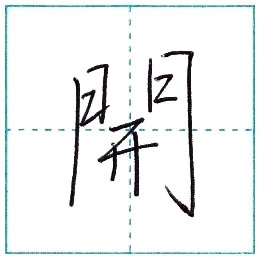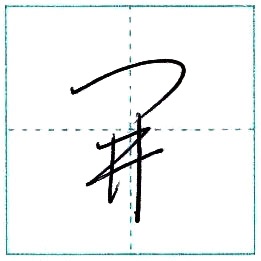前回と今回の記事で、行書の「開」を2種類紹介しています。今回はそのPart.2です。
ぜんかいとこんかいのきじで、ぎょうしょの「開(かい)」をにしゅるいしょうかいしています。こんかいはそのパートツーです。
In the previous and this article, I’m introducing 2 types of 開(kai) in semi-cursive script. This time is the Part.2.
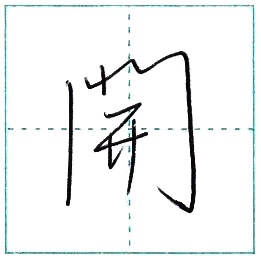
スポンサーリンク
単語例(たんごれい)
Word examples
未開地 [みかいち mi kai chi] / 未開の地 [みかいのち mi kai no chi] = undeveloped land
橋が開通する [はしが かいつうする hashi ga kai tsuu su ru] = the bridge opens
再開発 [さいかいはつ sai kai hatsu] = redevelopment
再開する [さいかいする sai kai su ru] = to start again
開票 [かいひょう kai hyou] = vote counting
開業する [かいぎょうする kai gyou su ru] = to open a business
開業医 [かいぎょうい kai gyou i] = family doctor, general practitioner(GP)
帝王切開 [ていおう せっかい tei ou sekkai] = caesarean section, C-section
西部開拓時代 [せいぶ かいたく じだい sei bu kai taku ji dai] = American frontier
西部開拓史 [せいぶ かいたくし sei bu kai taku shi] = American movie “How the West Was Won” in 1962
スポンサーリンク
書き順(かきじゅん)
Stroke order
1.
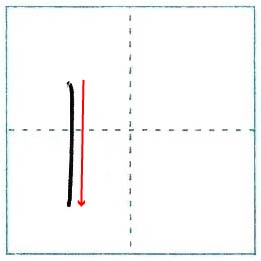
2.
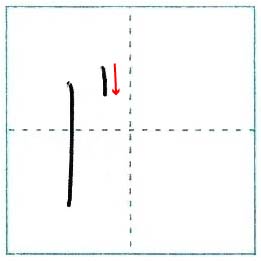
3. 次の線は、1画で書きます。
つぎのせんは、いっかくでかきます。
Write the next line with one stroke.
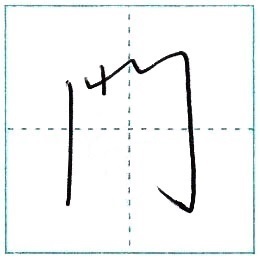
3-1.
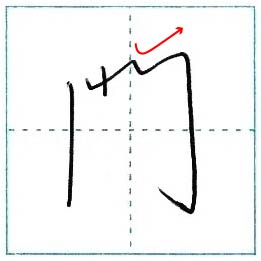
3-2.
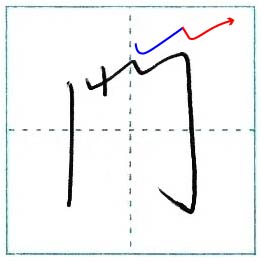
3-3.
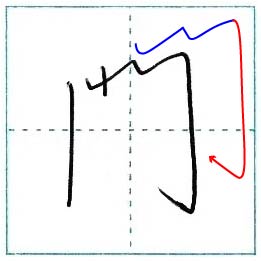
4.
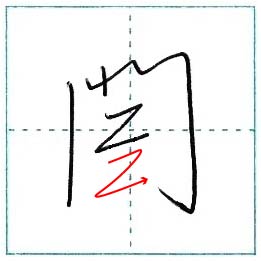
5.
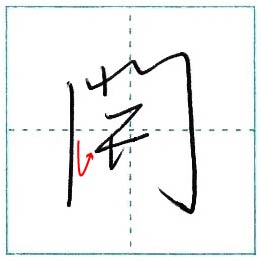
6.
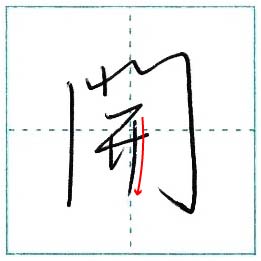
7. 完成(かんせい) Finish

公開日/post 2021.11.13
更新日/update 2021.11.13
スポンサーリンク

